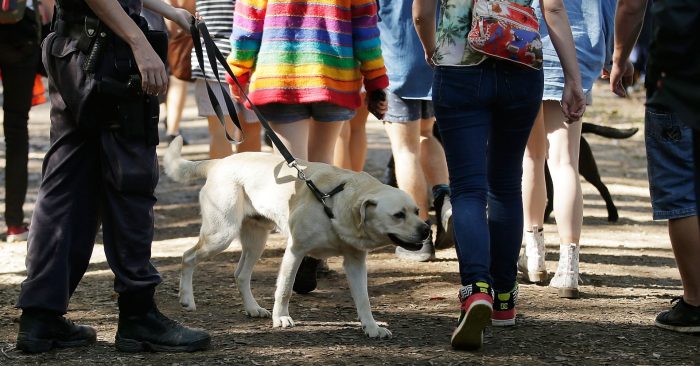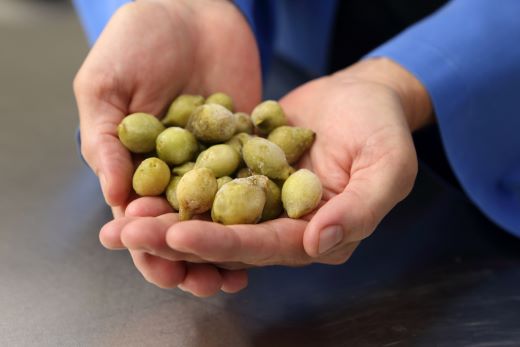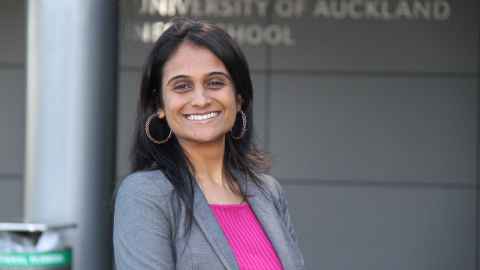NELL MCGILL, LIBERAL CANDIDATE FOR SHORTLAND: Hi, I am your Liberal candidate for Shortland. I am absolutely delighted to be here with the Prime Minister Scott Morrison. And with James Thompson, the candidate for the Hunter. It’s great to be here at Nupress [inaudible] a wonderful Shortland business, that’s working to manufacture products for the defence industry, for the mining industry, and we’ve heard today that they’re taking advantage of the great Coalition Government programs such as the Boosting Apprenticeships. So I’ll hand over to the Prime Minister.
PRIME MINISTER: Thanks Nell, and thanks James and thanks to Murray for having us here at Nupress and to everyone who I’ve spent some time with today, looking at the incredible work they’re doing here in the Hunter. In this year’s budget, we’ve invested $21 billion in the future of our regions, and within that, we’re investing just over $7 billion on transforming, particularly so we can unlock the wealth of our country. And one of those regions is right here the Hunter. $750 million being invested, particularly into things like the New England Highway out past Muswellbrook and especially the Newcastle Port. Now, on my many visits up to the Hunter, you will know that I’ve already made quite a number of announcements, whether it’s about the airport of the ports or others. That’s because we believe strongly in the future of the Hunter region. And the Hunter region pulling together the great industrial resources of the traditional industries. Newcastle University working together with the scientific community and in particular the defence industries that are here as part of the Hunter. Now, Nupress is a great example of that. Small business, medium sized business, employing incredibly talented skilled individuals that are part of our defence industries. They make parts here for the F-35. They’re a part of the supply chains of critical defence industries. And they’re generating jobs and they’re generating apprenticeships. We have 220,000 apprentices in trade training right now. Five of them are right here at Nupress. That’s the highest number of trade apprentices in training we have ever seen in Australia since 1963. I know our economic plan is working, because I know Australians are in work and they’re particularly in work here in the Hunter with both training opportunities, skilled opportunities, job opportunities that are growing every single year, our strategy for the regions pretty much, is very focused on the Hunter because I know when it works in the Hunter, it’s going to work all around the country because it’s combining together our traditional industries with our new manufacturing industries, supported by great universities and a strong workforce. So three quarters of a billion dollars in this year’s budget to specifically support the Hunter and help the Hunter transform, whether it’s in new energy such as hydrogen or making sure that the world’s biggest coal port, here in Australia is out there exporting to countries all around the world. And a particular point of thanks, because it was only just a week ago, just over a week ago that I announced that we were shipping 70,000 tonnes of coal to Ukraine to support them in their fight against the Russian invasion. Now, where else would you come to for coal other than to this part of Australia and where it will go out through the Newcastle Port? And that’s exactly where that coal will leave from. We understand absolutely the importance of the traditional industries here in the Hunter, and that’s why we’re backing them so strongly, as well as investing in the future opportunities as part of our economic plan. So well done to everyone here at Nupress, you’re involved in as part of our defence effort, because what you bring together is our economic security and our national security. And that’s on display with the great manufacturing work which is being done right here. I’ll ask James to say a few words, and I’m happy to take some questions.
JAMES THOMSON, NATIONALS CANDIDATE FOR THE HUNTER: Fantastic. Well, thank you, Prime Minister. It is businesses like Nupress here in the Hunter, we have world class manufacturing here. We have our mining industry. We have so many incredible small businesses and they are the backbone to the Australian economy. And the Hunter is the powerhouse of our nation and it’s great having the Prime Minister here today talking up the jobs that this government, the Nationals and Liberals in government have created in our region, a record number of apprentices. That’s what the Hunter wants and more businesses like this, manufacturing things here in Australia. And it’s fantastic to have a Prime Minister who is so supportive of making sure that we support existing industries, but not just supporting the existing ones, but we grow our economy and we grow the jobs, and we give our children and grandchildren the future they deserve right here in our region.
PRIME MINISTER: Thank you James. When I was looking at one of the machines in there, they had tolerances of what the heat could get to. And it couldn’t go above 23 degrees. And what this reminds me of is what I put in place when I was Treasurer, which is something called the tax cap. The tax cap I put into the government’s fiscal policy which said that taxes as a share of our economy should never rise higher than 23.9 per cent of the size of the economy. Now that 23.9 per cent was derived from the average tax to GDP that occurred from the introduction of the GST through to the global financial crisis. So you shouldn’t allow your taxes as a share of the economy to rise above that. And just like that machine would blow up, if you allow the temperature you to go above 23 degrees, so it’s true if you allow your taxes as a share of your economy to grow higher than what is a reasonable tolerance. The Labor Party yesterday, Anthony Albanese and the Shadow Treasurer said, the tax cap I put in place as Treasurer, and confirmed as Prime Minister, they will abolish. That means Labor is getting rid of the speed limit on taxes. There’s only one reason you’d abolish the tax cap, and that’s because you want to increase taxes.
JOURNALIST: Prime Minister, the Hunter seat has been held by Labor for decades. Do you think you can change voters’ trust?
PRIME MINISTER: Well, you know, Joel Fitzgibbon, I know very well, dealt with, is very well liked at the Hunter, and frankly he’s very well liked amongst parliamentarians on both sides of the aisle. And one of the things we always had in common with Joel, is he stood up for Hunter, he stood up for Hunter coal jobs, he stood up for traditional industries here in the Hunter and he didn’t get pushed around by the Greens when it came to policy, he stood strong. Joel’s gone and that means the Labor candidate will not be like Joel. He’s not Joel, and the Labor Party under Anthony Albanese is the Labor Party that Joel Fitzgibbon has left because of the Labor Party that will just toe the line with the Greens. And so Nell and James, we have two wonderful candidates for the Nationals and the Liberals that will stand up for Hunter jobs, that will stand up for the traditional industries. I’m very passionate about the future of the mining industry here in the Hunter, but I’m also passionate about the tourism industry. I’m passionate about the agricultural sector and the defence industry sector and the new energy industries such as hydrogen. That’s why you’re investing in the Hunter to the tune of three quarters of a billion dollars to unlock the wealth further at the Hunter, because that’s what makes Australia stronger.
JOURNALIST: [Inaudible] there is a fast growing population here. How will your government ensure enough social housing and affordable housing is available to meet future growth?
PRIME MINISTER: As Treasurer I established what was called the National Housing Finance Investment Corporation. It’s a government agency with borrowed money at very, very low rates, and it lends it to community housing organisations to build affordable housing. Now together with that initiative, and a number of others, we’ve been able to get 300,000 Australians into their own home in just the last three years. In the budget, we’ve got $2 billion extra to support the National Housing, Finance and Investment Corporation. That’s what we do as a Federal Government with the tools that we have. But as you know, social housing is 100 per cent a responsibility of the State Government. Where we help is with the community housing organisations to help them develop that new affordable housing. And that’s exactly what’s occurred. But our home loan support through the Home Guarantee Scheme means if you’re a single parent, you can only have to save a deposit of two per cent, not 20 per cent, two per cent. And that is getting thousands of single parents into their own homes, and we just doubled the overall Home Guarantee Program for 50,000 a year, 10,000 of those places are going specifically to the regional areas, like right here in the Hunter. When it comes to housing, we’re getting more people in the housing $5.1 billion spent every year in providing rental assistance to those who are renting, and when you’re dealing with cost of living pressures like rising fuel prices, we’ve halved the Petrol Tax, which has seen petrol prices already falling and providing savings to householders and motorists all around the country, which is helping their family budgets.
JOURNALIST: Prime Minister, the Government has rejected Queensland’s request to share funding for flood prone homes because it was outside the scope of Commonwealth programs. How is flood resilience outside the scope of Commonwealth responsibility?
PRIME MINISTER: When we have natural disasters, we have an arrangement with the states called the Disaster Recovery Arrangements. And when the Queensland Government, when the floods hit, they sought support under that arrangement and we immediately provided to them to the tune of $560 million. And that was to provide grants to small businesses and family businesses, things of that nature. Now I’ve asked the Queensland Government to tell us at that $550 million, it’s much more than that, that we agreed to go 50/50 with, how much have you actually paid out to people who are looking for those grants that we’ve already agreed to fund. And it’s important they answer that question because as a Commonwealth Government, we have already paid out $379 million dollars in disaster recovery allowance and disaster recovery payments. Now we meet those costs 100 per cent. And we’re also meeting costs in other areas to deal with mental health and other support to the community to help them get through the flood crisis. Almost around a billion dollars is what the Commonwealth is spending supporting the flood response in Queensland. Now I would like to see the Queensland government do the things that they’re responsible for and the request they made are the things the State Government’s do. We’re doing what we’re responsible for which is making those disaster recovery payments and those disaster recovery allowances to put money in peoples’ pockets and $379 million is already there. So in a crisis, we all have things that we’re responsible for. Commonwealth is securing everything we’re responsible for. And it’s important that the state government do the things they’re responsible for.
And another program that we have is the Preparing Australia Program, that is about $100 million, it is $100 million, which is grant support to those who could make applications. And together, we’re working with the State Government to finalise the guidelines where they can do things like put homes on stilts. So we’re providing support for the Queensland flood victims, just like we are for the New South Wales floods victims.
But the states have responsibilities and they need to step up, and I particularly commend the New South Wales government for how they’re stepping up. We’re stepping up with them. We’ve already got a billion dollars out the door in New South Wales, supporting the victims of those horrific floods, particularly in Northern New South Wales. But what the Commonwealth is doing is our responsibilities, and we keep stepping up with those, and we’ll keep making those payments. And I must admit, I find it disappointing that the floods in Queensland are being used as a bit of a political football by the state government being politically weaponised on the eve of an election. We’ve always worked very well with the Queensland Government when it comes to dealing with so many floods, and we provided that support as they know, and we’ve worked in partnership. So it’s disappointing that on the eve of the election, the Queensland government would play politics with this. When they’ve spent as much as the Commonwealth has already spent on the floods, well, we can talk further about what might further be necessary. But it’s important the Queensland Government move forward with these programs because just like a disaster recovery payment is our responsibility, there are responsibilities that they have.
JOURNALIST: New South Wales Premier Dominic Perrottet said that the delay in preselecting a number of candidates across the state is going to seriously limit their ability to win those [inaudible] seats. Do you agree with that, and if not, how can locals be expected to trust candidates that they’ll barely know by the time the election is called.
PRIME MINISTER: Well, obviously, we would have preferred the candidate to be selected earlier, but I’m absolutely thrilled with the candidates that we have selected with the Premier and Chris McDiven and I was with Maria Kovacic today in the seat of Parramatta. Now, the Labor Party has picked their candidate, which they parachuted into the Eastern suburbs just a few days ago. We’re going to the most important time when people are making the decision at this election. And quite understandably, Australians over the last three years have been very much focussed on what’s happening immediately in their world, getting through the pandemic, dealing with kids home schooling, keeping employees and their businesses, pushing through what has been a very difficult time. And when you add floods and fires, cyclones, all of that – it means Australians have been rightly very focussed on the things that are most important to them. But there’s an election coming up very, very soon. And at that election, Australians will be able to make a choice, and there’s plenty of time for them to make that choice and look carefully at what the alternatives are. As a Government, we’ve steered Australia through the worst economic crisis we’ve seen since the Great Depression, 40 times worse than the global financial crisis that Labor had to confront and with a 50 per cent better outcome on jobs than what the Labour Party had during that time. So we have the proven economic plan to take Australia forward. Last week, Anthony Albanese, he only announced one policy and it unravelled within four days. So I think people will get a good look at the candidates, they’ll get a good look at the policies, and I think it’s important that that’s what we focus on.
JOURNALIST: [Inaudible] Why do people within your Party keep criticising your character?
PRIME MINISTER: I understand why Catherine would be devastated by these floods, absolutely devastated and be upset. But as I made very clear last night, she was unfamiliar with the significant support we’ve provided, and I think the Premier has made similar comments today.
JOURNALIST: Prime Minister you’ve been to the Hunter repeatedly this year and last year – three Labor seats are hoping to be competitive here. How confident are you that the Government will be able to [inaudible]?
PRIME MINISTER: Well, what I’m confident about is my team and the economic plan, and the economic plan we particularly have for The Hunter. That’s what I’m confident about, because it’s the right plan for the Hunter. It’s not a plan that turns its back on the traditional industries. It’s not a plan that has been written to try and keep the Greens happy. It’s a plan that’s been written to ensure that the jobs at the Hunter remain the jobs of the Hunter, both now and into the future. The tradespeople will get their trade training here in the Hunter, and work here in the Hunter. That new jobs are being created, in new energy industries, as well as the traditional industries. The candidates that we’ve selected here are all about standing up in the Hunter, and standing up to the policies of Greens and Labor that seek to take those jobs away.
JOURNALIST: The Hunter was identified as one of several locations in Australia for a hydrogen hub, there’s been no decision on that, can we expect one before an election date.
PRIME MINISTER: And the other thing people in the Hunter will be pleased to know is that PEP-11 is not going ahead. I’ve made that commitment here in the Hunter, and I signed off on the paperwork just recently. The final paperwork, kept my promise – no PEP-11. Thanks, everyone.








